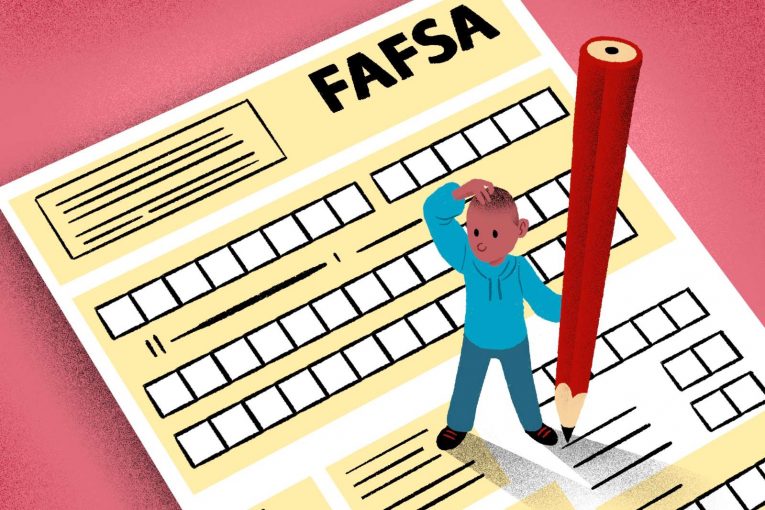
![]()
By Meera Zalavadia
The Department of Education has recently made some changes to FAFSA, the Free Application for Federal Student Aid. The FAFSA determines qualifications for federal Pell Grants and federal student loans and typically influences financial aid offered by colleges. Although the intent was to make more students eligible to receive aid, they left the future of millions of aspiring college students in limbo.
According to a CNN report, the revised FAFSA form aims to simplify the process by taking information directly from the applicant’s tax return and potentially reducing the number of questions applicants need to respond to. However, the form was released about three months late and has been experiencing even further setbacks. The department “made a major error in the new form by not accurately adjusting families’ incomes for inflation.”
Despite the changes implemented being approved by Congress in 2019 and 2020, the Board of Education has failed in its execution. With approximately three years to properly implement these changes, why is there such a significant delay in the timeline? While acknowledging that mistakes can happen, considering the pivotal role of financial aid, it is puzzling that the Board of Education did not anticipate this and plan ahead. This one oversight has led to heightened stress for countless students.
According to the Washington Post, the federal agency announced it will send out applicant data to colleges in March 2024, which is two months later than the original schedule. As a result, colleges might be unable to send out aid offers until April, which is quite close to college decision day. In an effort to support this delay, the agency announced plans to dispatch at least 50 financial aid experts, who will help colleges generate financial aid packages, to institutions facing resource shortages. Despite the additional assistance, there is no guarantee students will receive their aid packages any sooner.
Given the significant role finance plays in the decision-making process, students are now on a short deadline. Moreover, it disproportionately impacts those who have greater financial considerations, especially low-income students. The long-standing goal of FAFSA is to foster equal opportunities for students aspiring to attain higher education. The recent difficulties have succeedingly threatened this vital objective.
Although the majority of colleges adhere to the May 1st commitment deadline, some institutions, as reported by Inside Higher Ed, have extended their deadline. While this is a welcome development, it is notable that the Department of Education is relying on colleges to bail them out of the mess they created.
Students have long been advised to submit their FAFSA early for ideal results. But how can students play by the rules of a system that consistently fails to prioritize their needs? The Board of Education, entrusted with the future of millions, fell short in ensuring a smooth transition to college. The current challenges clearly highlight the necessity for increased transparency and accountability in the Department of Education.
Without accountability measures to address the underlying reasons for these delays and preventative measures to ensure similar issues do not recur, students will find it challenging to trust the very institution designed to serve their educational needs.